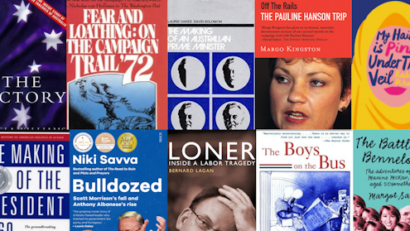Election Diary: Coalition makes ‘law-and-order’ pitch, with plan to invest proceeds of drug crime into communities
As it seeks to gain some momentum for its campaign, the Coalition on Monday will focus on law and order, Läs mer…
Nyheter och länkar - en bra startsida helt enkelt |Oculus lyx vitae
As it seeks to gain some momentum for its campaign, the Coalition on Monday will focus on law and order, Läs mer…
In this week’s episode, Michelle and Amanda discuss the third week of the election campaign, which was dominated by competing Läs mer…
Peter Dutton, now seriously on the back foot, has made an extraordinarily big “aspirational” commitment at the back end of Läs mer…
Two “moments” stuck out in Wednesday’s leaders’ debate, the second head-to-head of the campaign. Peter Dutton cut his losses over Läs mer…
Australians strongly disagree with key policies of US President Donald Trump, and have overwhelmingly lost trust in the United States Läs mer…
Global markets have remained on edge after Donald Trump’s “Liberation Day” tariffs caused panic worldwide. Now, more Läs mer…
For a few hours on Tuesday afternoon, it seemed just possible the Russians might be sending their planes to a Läs mer…

Phantasmagorical policy promises, TV meltdowns, gonzo journalists … political campaigns were once the stuff of passion and high drama. Läs mer…